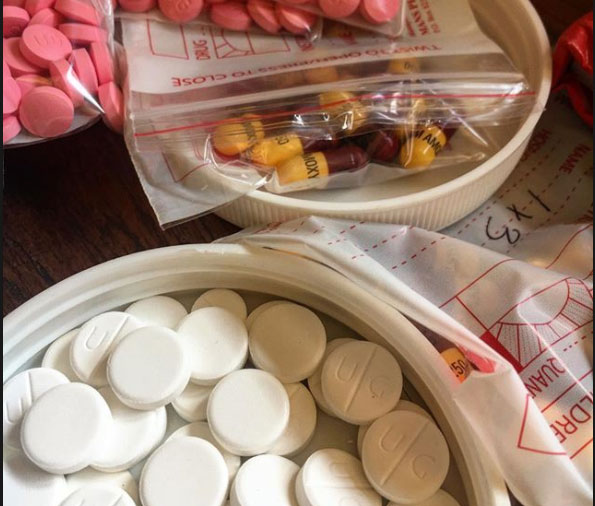
Kampala, Uganda | THE INDEPENDENT | Luweero hospital and government health centres have run out of essential medicines leaving hundreds of patients stranded.
Every two months, National Medical Stores (NMS) is supposed to deliver essential drugs to district stores before they are distributed across health centres.
However, in Luweero district, NMS last delivered drugs on 27th November in 2019.
According to the Luweero district drug delivery schedule, NMS was supposed to deliver the next batch of drugs on 6th January 2020 in vain.
As result, the hospital and health centres have run out of essential drugs leaving patients stranded.
Irene Nankanja a resident of Kudumaali village in Kamira sub county is currently looking after her eight-year-old child who is admitted at Luweero hospital after contracting fever.
Nankanja says since Friday when he was admitted, he has not received any drug and they were advised to buy it from the pharmacies outside the facility.
Nankanja says she has spent over 150,000 shillings on buying the prescribed drugs from pharmacies but she is now stuck after running out of money for another dose.
Fatumah Nakalembe another caretaker says that apart from buying drugs, they also procure syringes and gloves for health workers to diagnose their patients.
Nakalembe says she has spent on 40,000 shillings to buy drugs since admission at Luweero hospital but constrained to buy other doses.
Alex Nsanzabaganwa a resident of Katundu village says that he only received coartem tablets when he took his sick child for treatment at Luweero hospital.
Nsanzabaganwa was asked to buy Paracetamol and Albendazole tablets from the pharmacy to treat his children after failing to get at them from hospital.
Caretakers and patients have asked NMS to save them and deliver drugs to the hospital.
Joseph Serugo, the Luweero District Secretary for Health says that the situation is the same across all government health centres.
He asked NMS to adhere to its own delivery schedules to save the health centres from shortages.
Luweero District Health Officer Doctor Innocent Nkonwa had directed health centres to utilize drugs reserved under Integrated Community Case Management (ICCM) system in to minimize drug stocks.
Under ICCM, the government allocates drugs to Village Health Teams to treat children in communities. The VHTs are given supplies to treat diseases that include malaria, pneumonia and diarrhoea.
However, several in- charges of health centres who preferred anonymity told URN Reporter that they have also run out of the drugs and they have nothing to do but to direct patients to buy from drug shops.
They are fears that some patients may die in homes after failing to access drugs and they are poor to buy prescribed drugs.
Nkonwa confirmed the drug shortage and explained that he notified NMS but they are yet to respond.
Last week Nkonwa wrote to General Manager of NMS complaining of late deliveries.
Nkonwa noted that late supplies had crippled the health services in the district and asked them to deliver drugs.
When contacted Moses Kamabare the General Manager of National Medical stores didn’t pick neither return the calls.
Dan Kimosho the Spokesperson of NMS was unavailable and never returned calls of our reporter.
Each cycle, NMS is supposed to deliver drugs worth 144 million shillings to Luweero district.
According to findings by Twaweza East Africa titled Health Check: Ugandans’ experiences and opinions on health services released in July 2019, more citizens complained about long waiting times (from 72% in 2017 to 81% in 2018), a lack of medicines or other supplies (70% to 78%), lack of attention or respect from staff (43% to 55%) and absent doctors (37% to 44%) among others challenges in government health centres.
The brief is based on data from Sauti za Wananchi, a nationally representative high-frequency mobile phone survey. The findings are based on data collected from 1,913 respondents across Uganda in October 2018.
*****
URN
 The Independent Uganda: You get the Truth we Pay the Price
The Independent Uganda: You get the Truth we Pay the Price



